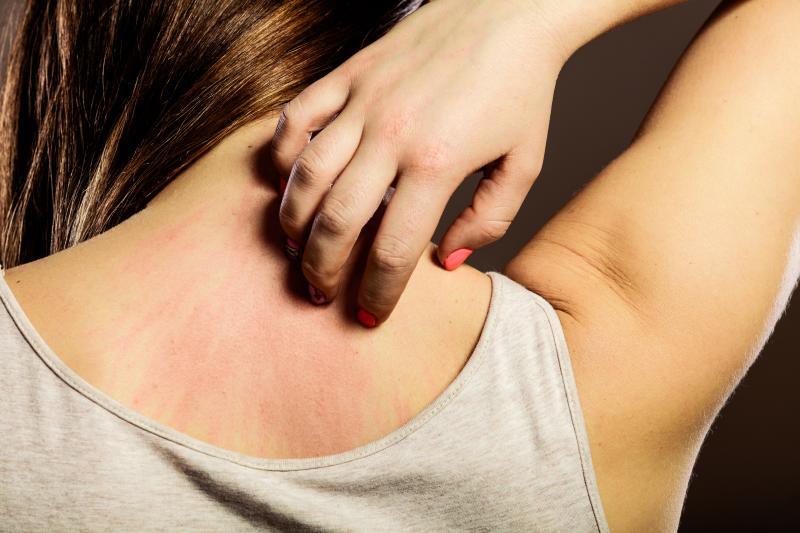
Serlopitant appears to reduce pruritus in patients with mild-to-moderate psoriasis, a new trial has shown.
The researchers randomly assigned 203 patients to receive either 5 mg serlopitant (n=102; mean age, 48.2±15.2 years; 52.9 percent male) or placebo (n=101; mean age, 46.7±12.3 years; 38.6 percent male), given over 8 weeks of treatment. The primary efficacy endpoint was responder rate at week 8, quantified using the worst itch numeric rating scale (WI-NRS).
A third (33.3 percent) of the patients in the serlopitant arm achieved a 4-point improvement in the WI-NRS after 8 weeks of treatment. In comparison, the rate of similar improvement in the placebo arm was 21.1 percent (p=0.028).
Serlopitant also fulfilled the key secondary endpoint of a 4-point WI-NRS improvement over 4 weeks. This was reported in 20.8 percent of the serlopitant group, as opposed to only 11.5 percent of the placebo comparators (p=0.039).
The key absolute change values for WI-NRS were also greater for the serlopitant arm when measured by day 3 (–0.744±1.464 vs –0.455±1.318) and day 7 (–1.338±2.025 vs –0.780±1.618). The principal findings were generally maintained across subgroups of age, sex, weight, body surface area, and baseline WI-NRS score.
These efficacy advantages did not come with excess safety concerns. The incidence of treatment-emergent adverse events (TEAEs), for example, was comparable between the serlopitant and placebo groups (37.3 percent vs 35.0 percent). Most of the cases were of mild or moderate severity, and no serious TEAEs were reported in the serlopitant arm.